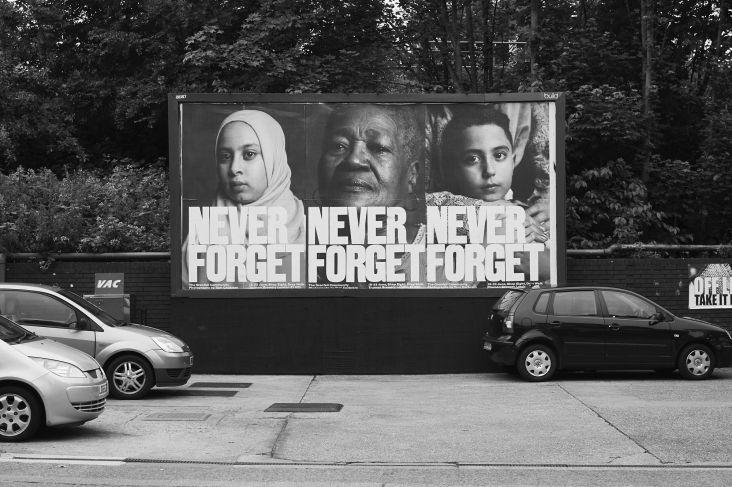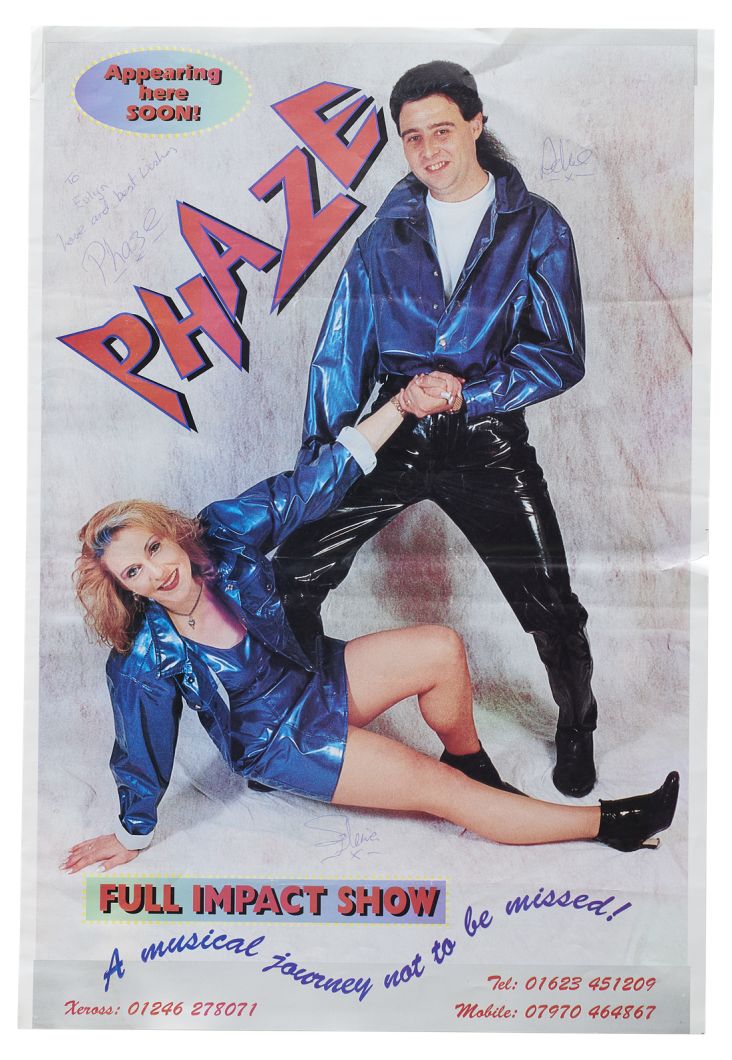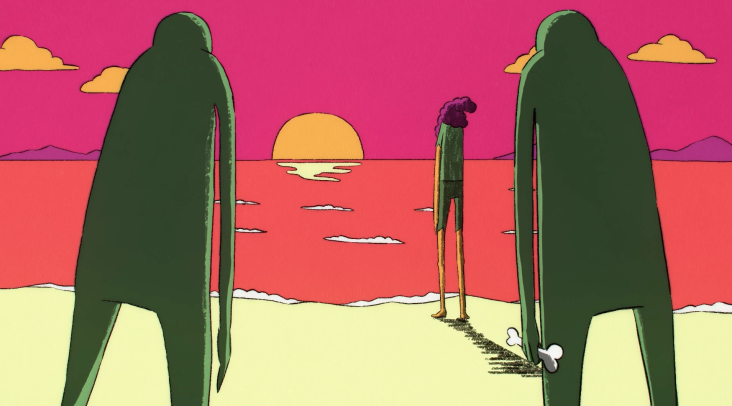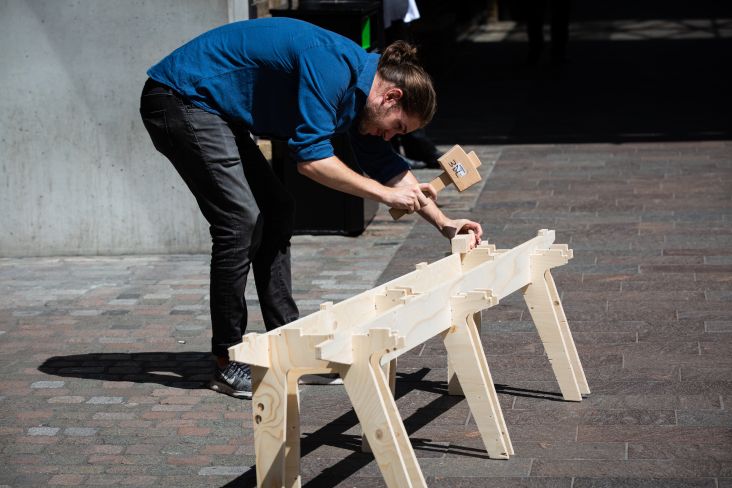How to get over the feeling that you're never doing enough
You've spent eight or nine hours at your desk, except for a quick break for lunch. You've made progress. It's been a good day. So why do you feel you should be doing more?
](https://www.creativeboom.com/upload/articles/fb/fbfca4fd72de6c12181a566fcf745d1fe0d032e2_1280.jpeg)
Image licensed via Adobe Stock
This anxious feeling – that we're never doing enough – where does it come from? Is it a modern affliction? One brought on by social media and screen-scrolling? Or is freelancing to blame? The constant need to push ahead from the fear of being left behind?
I never used to feel this way. Back in the days of "employment", I'd have strict boundaries on when work began and when it finished. When I left the office, I went home, and that was that. I mentally pulled a curtain down on my job and relaxed, cherishing my evenings and weekends. (Mind you, Instagram wasn't around back then, so that probably helped.)
But being a business owner is different. I make my own rules. Set my hours. Decide what's what. Unfortunately, that can mean an unhealthy work schedule. One that probably begins on my smartphone as I switch off my morning alarm and sadly ends just before I pass out each night.
As someone who grew and (deliberately) downsized a PR agency and built an online magazine, it's not surprising that I get anxious and feel I'm never doing enough. All of the emails I get these days from people asking for help – it's lovely to be in that position but also daunting. Plus with so much competition out there, I understand that if I'm not pushing on, someone younger with more energy might overtake me.
Anxious thoughts aside, at the beginning of 2019, I vowed to make some serious lifestyle changes that would effectively make my life better. Building back my confidence was one primary focus. Getting a decent work/life balance was another. On the latter, I'm still working on it, but I'm getting there. Here, I will share what's worked for me so far.
Get organised for mental clarity and calm
I start each day with a to-do list that's realistic, adding one big job and a few small ones. I get the larger job out the way first, as this will take up the most energy and time. Then I roll my sleeves up and tackle the rest. By sorting everything planned, I feel in control. I know where I am with things. I can close the door on "work" and say hello to "play".
I use Things to keep track of tasks. It's in the cloud so syncs with my Mac and mobile, making everything more manageable. Before I switch off my computer at the end of each day, I like to go through upcoming tasks and add anything I might need to consider in future. Call it a "brain dump", if you will. A mental cleanse.
By ticking things off my list, l feel amazing – as though I've accomplished something. By keeping track of what's next, I don't even think about work during downtime. I also always remind myself that I can only do so much.
Consider what the "more" actually is
When I've had a productive day, and I'm trying to wind down for the evening, if I still get that niggling feeling that I should be doing more, I sift through the mental noise and figure out what more actually is.
It could be a job I've been putting off. In which case, I grab a notepad and start to write a plan of action to address the next day. Or it might be something that's building up – for example, emails to Creative Boom (and there are so many of them) get organised into different folders to tackle on quieter days. It could be something else I'm anxious about – have I done enough marketing this week? Should I write a blog post? What about another tips article?
Face up to the "more" and make a plan to address it. If it's not so logical – if you can't pinpoint what "more" is – then practice a little mindfulness through meditation, exercise or even ironing to alleviate any stress or unexplained anxiety.
Recognise the self-inflicted pressure and release the valve
If you work for yourself, there's an enormous pressure to make, create, improve, see and do. It's never-ending. It's only made worse by scrolling through our Instagram feeds or browsing blogs and magazines that bombard us with the usual "hustle" rhetoric. (I know I've been guilty of this in the past – a bit of a grey area, as a lot of Creative Boom's success, can be attributed to hard work and sacrifice.)
We're so petrified we'll get left behind, or work will stop coming in, we daren't stop. We keep running on our self-made treadmills. And now we're all exhausted by it. You can see just how much on Twitter. Mental health is a trending topic. People are opening up, admitting they can't cope. (Revelation: we can't keep running!)
But all that pressure, along with high expectations, is self-inflicted. No one is to blame but ourselves. That's the truth. It's a reality we must recognise. I'm certainly trying to.
I've asked myself the question lately, who am I trying to impress? It's a question we should all ask. Why the pressure? If it's fear of work drying up, that's only natural. But if work is fine, clients are happy, and bills are more than covered, why aren't we chilling out?
Take a moment to ask yourself honestly, does any of it matter? For instance, if you didn't post something on Instagram today, would everything be ok? Could the side project take a break this evening, for a change? How about switching off entirely and taking a day off? Take a deep breath and relax. The world will continue to spin without you chained to your desk.
Meanwhile, if you're feeling guilty about "doing nothing", remember that you're no good to anyone if you don't take some time off. Rest is important. You have to recharge your batteries to be productive at work. I know this only too well, having experienced burnout first-hand and then not being able to handle anything. Prioritise your health and wellbeing.
If you're feeling especially rough, avoid inspiration from others
Yes, that's right. Get off Creative Boom, and It's Nice That. Temporarily delete Instagram from your smartphone. Hide the smartphone – shove it down the sofa. Don't go to creative talks to hear from people you admire or who run successful design agencies. Yes, really. Hide for a little while.
(I went to a creative conference last year and the general mood from some other freelancers was sombre. Many felt overwhelmed by hearing from such inspirational speakers. "How will I ever be good enough?" was the theme of conversation. It was as though a dreaded cloud had fallen upon an anxious audience.)
Give your brain some breathing space. Be alone and ignore everyone else to stop the endless comparison. You'll find your anxiety starts to lift when you're not constantly being bombarded by "greatness".
In the words of Pablo Picasso, "Without great solitude no serious work is possible."
Avoid comparing yourself to others
It's easy to fall into the trap of comparing yourself to your competition, but it's a genuinely fruitless exercise. What they're doing has no relation to your business whatsoever. They are on a personal journey of highs and lows, mistakes and lessons. It's unlikely that you'll gain success by copying them because you won't have been through the process yourself.
You have to focus on your strengths. The very essence of what makes you unique. Creative Boom, for instance, has gone through many changes over the last ten years. I've made a lot of mistakes and learnt a lot of lessons. But it's always been what works best for me and my audience.
When people come to me and say, "I want to start an online magazine like you, how can I make it a success?" I shrug my shoulders and say, "Honestly, you're on your own path, and only you know what's best." It's the truth. Ten years of doing this and I'm not sure I'd know where to start with advice on running a magazine – any tips I'd offer would probably become outdated rather quickly.
Redefine success
Speaking of success, what does success mean to you? Is it money related? Will you feel happy once your business hits a particular turnover mark or size? Or is it about the car you drive or the house you own? Is "success" about wealth, happiness or both? What are you striving for?
It sounds ridiculous to ask this question but have you ever stopped to consider where you're heading?
For me, I always had a vague idea of what I wanted from life. I knew I wanted to be a journalist. That was pretty clear. I knew that I wanted to be happy and see the world. I'm not sure money was ever a priority, but I wanted enough to be safe. But I've never really stopped to think what next? It's all been somewhat sporadic. None of it planned.
As for the very meaning of success – for me, that's a tricky one. Its definition hasn't changed as I've got older. I just wanted to be happy. That's it. Nothing more. To do something I loved for a living and smile a lot.
I think I've always remembered that. But, like many, have fallen into the trap of overwork and the need to achieve more, more, more. That's just the circle I've found myself in.
Now I've turned 40; I realise that "work", although still relevant, is no longer the main priority. Instead, I'm seeing that having more "time" is the ultimate goal.
That means I'm learning to say "no" more. I'm deliberately turning things down to become less busy and gain more time to focus on other pursuits. It's been a slow process, but I'm much happier.
Work is just one aspect of our lives; it shouldn't be the only thing we're passionate about. To me, success means covering your bills, having a decent work/life balance and following your passions. It means being healthy and appreciating each day. What does success mean to you? You might find you've been prioritising the wrong things.
Enjoy the journey as well as the destination
Do you know those people who hate travelling? I'm not one of them. I love the process of packing my suitcase, going through security at the airport and settling down in my seat to look out the window and watch the clouds float by. I love the anticipation of the upcoming holiday. I get butterflies.
This probably comes from my lucky childhood. Both my parents worked incredibly hard to give me and my brother a wonderful life. But once a year, for two glorious weeks, we would drive to the south of France for a holiday.
Before we even got there, it was special. My mother had such a gift in creating magic out of the mundane; she would get us all excited about the whole journey. The night before the "big drive south", my father would pack the boot of our car like some military operation. We were under strict instruction not to disturb him, as he had a "system" that he would religiously follow. He knew how to pack that car better than anyone, so we left him to it. But weirdly, you could see he enjoyed it. (I, too, have picked up this strange habit.)
And then we were off. The hovercraft or ferry was an adventure. Spotting the French car number plates and figuring out where they were from – that was fun. Watching the countryside flash past. The anticipation of what our accommodation might be like. It was all wonderful.
You can see what I'm getting at here – rather than focus on the actual outcome, enjoy the process. Work isn't just about results; it's about the journey we take to get there. Savour it. Enjoy the little "wins" along the way. And understand that things don't happen overnight.
Celebrate your achievements, no matter how small
Instead of focusing on what happens next, take a moment to celebrate how far you've already come. I'm doing exactly that this summer, as Creative Boom is celebrating ten years of supporting the creative community. And let me tell you, I didn't even think about marking the occasion until a friend said I should.
Like a good old Brit, I thought, well, I don't want to show off. And really, it's no big deal. But I'm discrediting all the hard work and love that has gone into this "side project" over a decade of my life. There is, indeed, so much to celebrate. And celebrate it, I shall.
I've got some announcements to make next month on our 10th-anniversary. Until then, know this – we should all recognise our successes and wins. No matter how small. We don't do it enough.
So next time you're thinking about all the things you should be getting on with, sit back and recognise what has already come to pass. You're doing great. Be proud of yourself and all you've achieved. You have so much to celebrate.
Those are my thoughts on beating "treadmill anxiety", as I like to call it. You can see what other freelancers and creatives do to cope by checking out this Twitter thread. As always, I may update this article with further tips in future.




 by Tüpokompanii](https://www.creativeboom.com/upload/articles/58/58684538770fb5b428dc1882f7a732f153500153_732.jpg)


 using <a href="https://www.ohnotype.co/fonts/obviously" target="_blank">Obviously</a> by Oh No Type Co., Art Director, Brand & Creative—Spotify](https://www.creativeboom.com/upload/articles/6e/6ed31eddc26fa563f213fc76d6993dab9231ffe4_732.jpg)













](https://www.creativeboom.com/upload/articles/00/00bcc2ba5785857a2395f52e25686ce4bfc2640e_732.jpeg)


